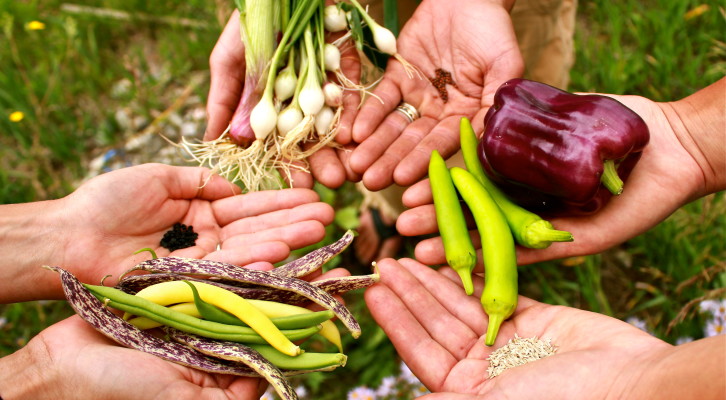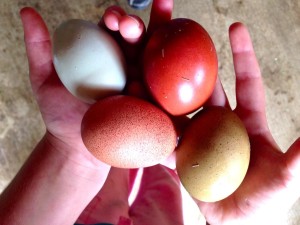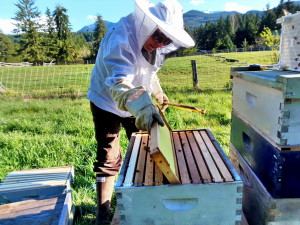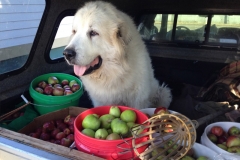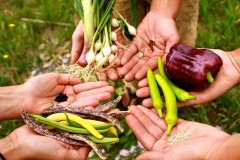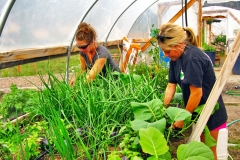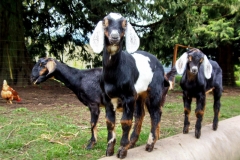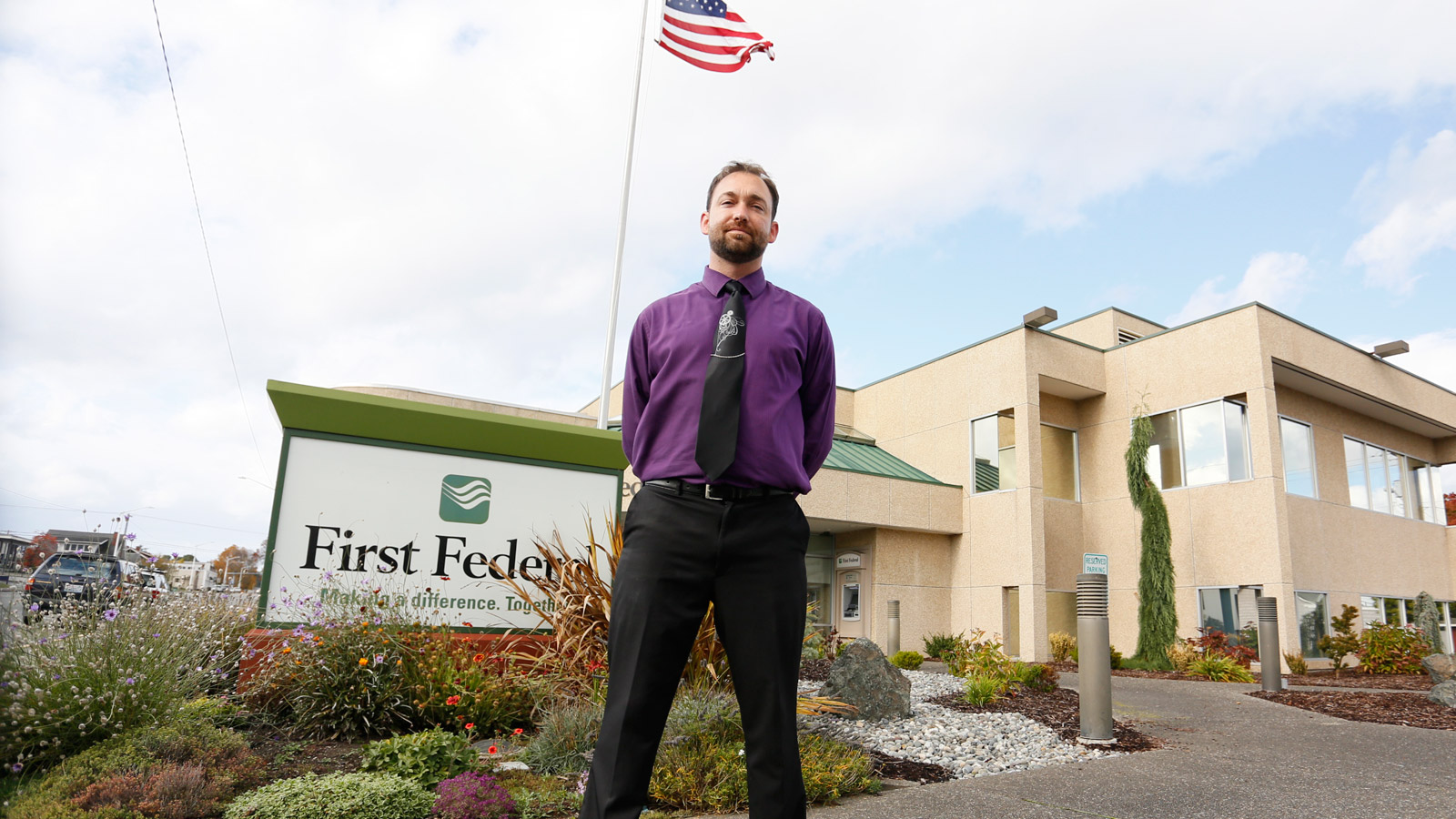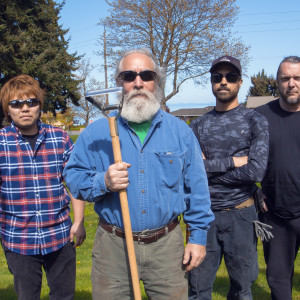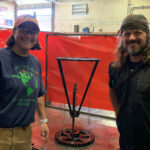Last summer, I moved to the Peninsula to become a Greenhorn Farmer. I’d been visiting the Pacific Northwest for years and fell in love with what attracts most people to our area – the trees, the beaches, and the mountains. Another thing about Clallam County that captured my interest was the small, two to five acre homesteads that shaped the landscape. Coming from a tiny condo in Summit County, Colorado, I was enamored by the concept of owning land. I, too, wanted to be a backyard homesteader, growing my own food, and striving for self-sufficiency.
Who knew that something our grandparents used to do would come back as the new hip trend? City people, college students, and other folks across the nation are turning their televisions off and turning soil instead.
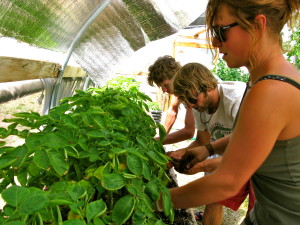
Colorado Mountain College students harvest for the student-run CSA (Community Supported Agriculture)
People are learning that you can participate in the local food movement and live just about anywhere… city to country and everywhere in between. I’ve yet to see a more perfect setup for this opportunity than the Peninsula. It’s already happening. We have small and large farms, pick-your-own, value-added, agritourism, community gardens, roadside stands, farmer’s markets, farm stores, co-ops, and CSAs.
More importantly, community members feel that connection to food. They care about where their food comes from and how it is produced.
The connection to food – “homegrown,” land, soil, working with your hands, seeds, the harvest… has always intrigued me. There is so much opportunity for our community and future generations to learn the story of our food. To me it’s about education, hands-in-the-dirt experiences, and pulling carrots out of the ground in late summer after planting tiny seeds in the spring.
If you can relate to this, you know how easy it is to lose several hours in your garden taking care of your plants as if they were their own children. Watering, feeding, weeding, observing, smelling, cutting, planning, and sowing… just a few of the blissful benefits.
As you can see, there are many ways to connect to food at any age. However, I believe the most significant and lasting connection can be made with college students. I also believe, wholeheartedly, that Peninsula College has amazing potential to be that vehicle for our community.
Young farmers, also referred to as “The Greenhorns,” include 20- and 30-somethings that get the bug to abandon “city” life and move to small “country” plots to form farming communities. In feeling this inherent connection to the land and returning to our roots, the Greenhorns are a fundamental piece to a functional and sustainable food system.
We need young people to fall in love with agriculture (and agriculture done right!) so the next generation of farmers can continue to produce our food. At the same time, we need community members to carry on their micro-farming endeavors to ensure our local foodshed prospers and grows.
That’s why I am pleased to announce two new short-term certificate programs at Peninsula College starting this fall: Sustainable Food Systems and Building for Small Farms and Sustainable Agriculture. The certificate programs are ideal for anyone wanting to learn more about the major challenges impacting today’s food system as well as how to address these issues with local, community-based, sustainable solutions.
The Sustainable Food Systems program will be offered online and is designed for both aspiring farmers and community leaders interested in learning how to work in a regional food system in the areas of advocacy, education, and production. Building for Small Farms will provide students with the necessary skills to research, design, and build backyard farm and garden structures that promote the efficiency of urban sustainable living.
I hope you’ll consider joining us this fall as we cultivate new students of agriculture! To learn more about these programs, please visit: http://pencol.edu/proftech/sustainable-agriculture or contact Jennifer Santry at jsantry@pencol.edu.
About the Author
Jennifer Santry is the online instructor for the new Sustainable Food Systems Certificate program at Peninsula College. She moved to Sequim in 2014 to start her own farmstead. She has worked in the nonprofit sector for over 13 years as an environmental instructor, land and animal conservationist, and local food advocate. She received her Master’s in Nonprofit Management from Regis University. As the Community Programs Director at the High Country Conservation Center in Summit County, Colorado, Jen established a community garden network, a student-run CSA, and new urban farming policies. She also teaches Foodshed Sustainability, Nonprofit Management, and Sustainable Agriculture online for Colorado Mountain College and UMASS Amherst’s Sustainable Food and Farming Program.

